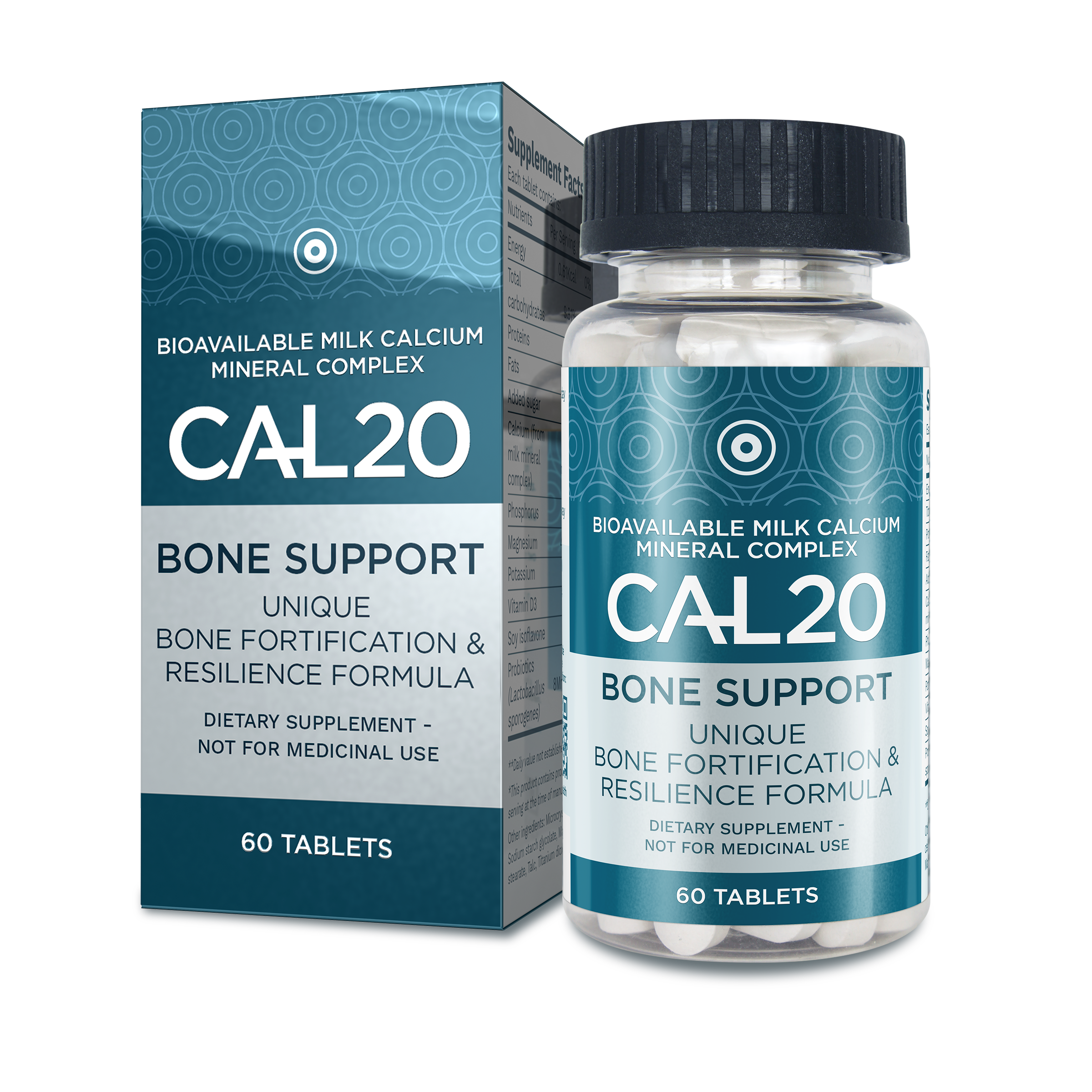Soy isoflavones are a group of naturally occurring plant compounds found predominantly in soybeans. They are a type of phytoestrogen, which means they have a chemical structure similar to the human hormone estrogen. Due to this similarity, soy isoflavones can interact with estrogen receptors in the body, influencing a variety of physiological processes. One of the areas where soy isoflavones have shown potential benefits is in bone health, particularly in the stimulation of osteoblasts.
How Cal20’s Soy Isoflavones Boost Bone Health
1. Estrogenic Activity:
As women age, particularly during and post-menopause, estrogen levels decline. This hormone is vital for bone density maintenance. With its drop, bone resorption increases while bone formation decreases. Cal20, enriched with soy isoflavones, steps in here. These isoflavones, due to their estrogen-like properties, bind to estrogen receptors on osteoblasts, the bone-forming cells. This binding enhances osteoblast activity, leading to improved synthesis and deposition of bone matrix.
2. Inhibition of Osteoclasts:
Cal20 doesn’t just boost osteoblasts. Its soy isoflavones also suppress osteoclasts, the bone-resorbing cells. This dual action ensures a balanced bone formation and breakdown, resulting in superior bone density.
3. Antioxidant Properties:
Oxidative stress can be detrimental to bone health, causing inflammation and increased bone resorption. The soy isoflavones in Cal20 are potent antioxidants, neutralizing harmful free radicals. By curbing oxidative stress, they indirectly bolster osteoblast function and activity.
4. Upregulation of Growth Factors:
Research indicates that soy isoflavones, like those in Cal20, can amplify the production of growth factors, such as bone morphogenetic proteins (BMPs). These factors are instrumental in bone formation and osteoblast differentiation.
Conclusion
Cal20, with its soy isoflavones, offers a comprehensive approach to bone health. It mimics estrogen, suppresses osteoclast activity, combats oxidative stress, and enhances growth factors. This positions it as a breakthrough remedy for conditions like osteoporosis, especially for postmenopausal women. Always remember to consult a healthcare professional before starting any supplementation.
*Upregulation refers to the increased production or activity of a cellular component .
**Note: The effects of soy isoflavones can vary among individuals, and further research is ongoing to understand their full impact on bone health.
References:
- Journal of medicinal food : Soy Isoflavones and Osteoporotic Bone Loss: A Review with an Emphasis on Modulation of Bone Remodeling Xi Zheng,1 Sun-Kyeong Lee,2 and Ock K. Chun 1 https://www.ncbi.nlm.nih.gov/pmc/articles/PMC4717511/
- An overview of dietary isoflavones on bone health: The association between calcium bioavailability and gut microbiota modulation Azmy Harahap a, Joanna Suliburska a
- Journal of Osteoporosis: The Significance of Soy Protein and Soy Bioactive Compounds in the Prophylaxis and Treatment of Osteoporosis




